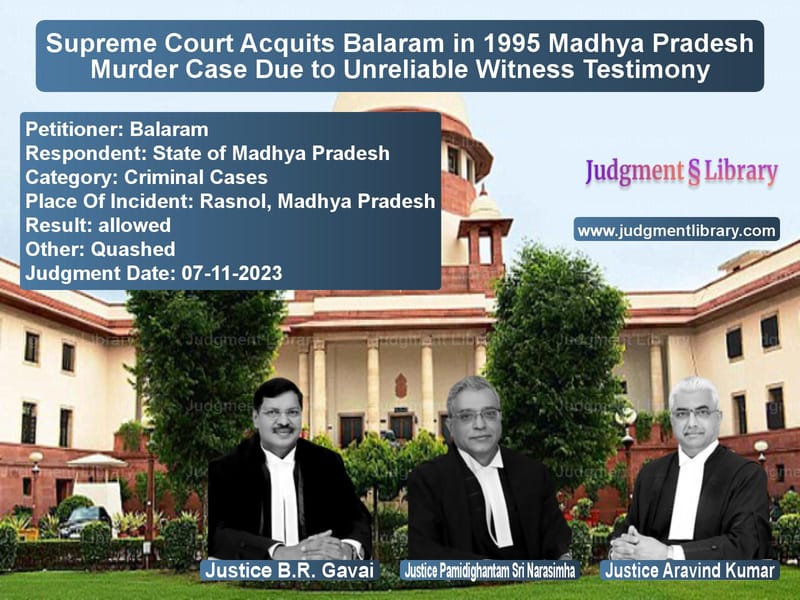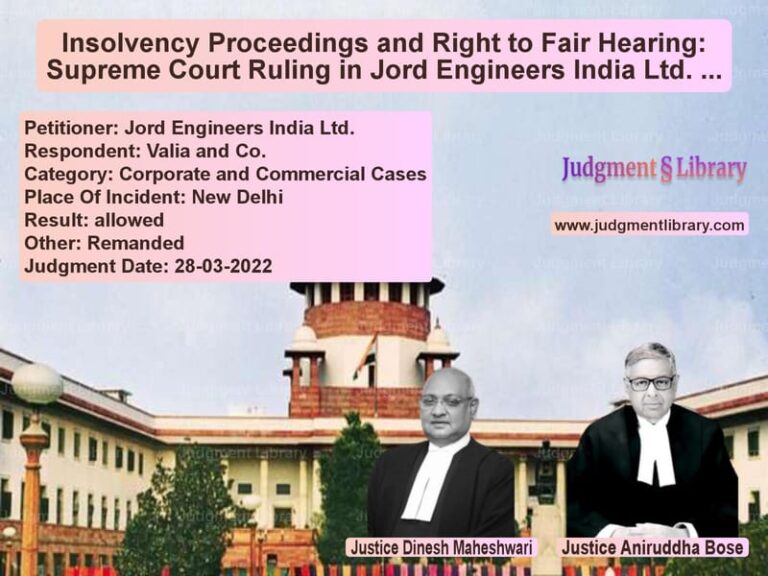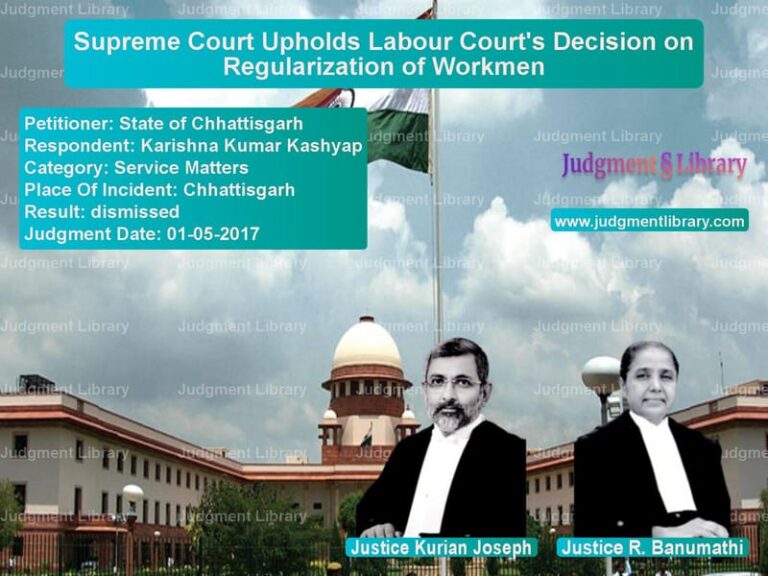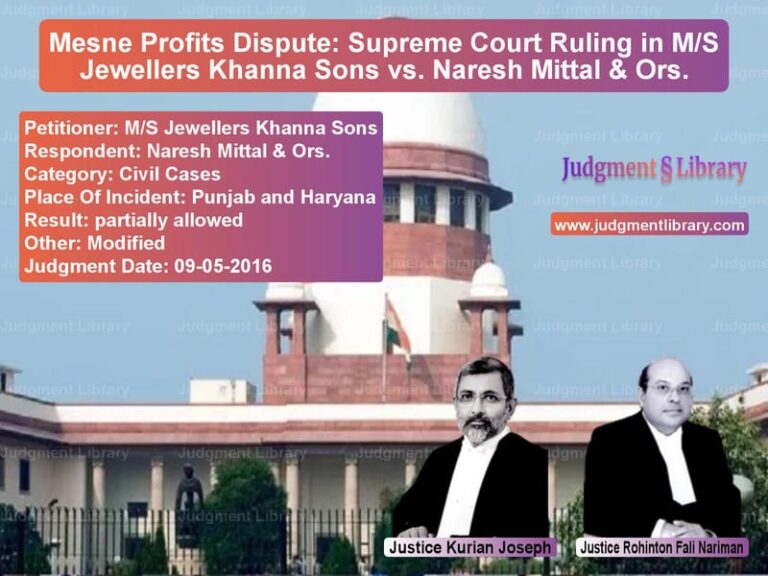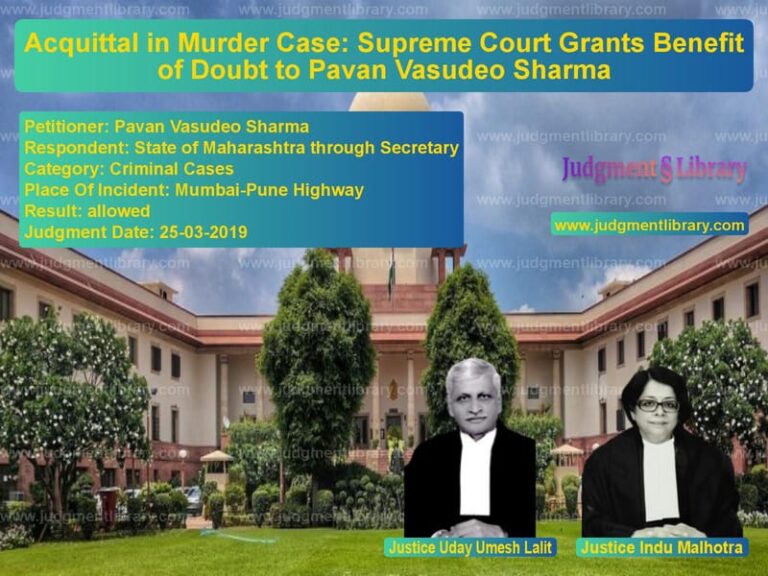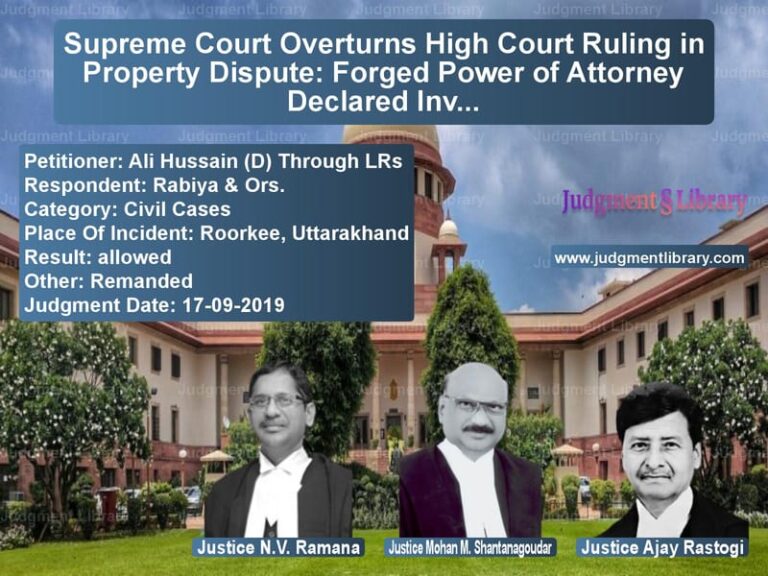Supreme Court Acquits Balaram in 1995 Madhya Pradesh Murder Case Due to Unreliable Witness Testimony
The Supreme Court of India recently delivered a crucial judgment in the case of Balaram v. State of Madhya Pradesh, where the appellant, Balaram, was acquitted of murder charges due to inconsistencies in witness testimonies. This ruling highlights the importance of reliable eyewitness accounts in criminal cases and ensures that convictions are based on credible evidence.
Background of the Case
The case dates back to 1995 when a violent incident occurred in Rasnol village, Madhya Pradesh. The prosecution alleged that Balaram and five other accused attacked a group of villagers traveling on a bullock cart, resulting in the death of Ashok and injuries to others. The case was initially registered under Section 307 IPC (attempt to murder) but was later converted to Section 302 IPC (murder) after Ashok’s death.
The Trial Court convicted Balaram and another accused, Rameshwar, under Sections 148, 302, and 307 IPC, while acquitting four others. The High Court of Madhya Pradesh upheld the conviction, leading to Balaram’s appeal before the Supreme Court.
Prosecution’s Allegations
The prosecution claimed:
- Balaram and Rameshwar were part of an armed group that intercepted a bullock cart carrying the victims.
- Rameshwar fired the first gunshot at Ashok’s chest, while another shot struck Ashok’s arm.
- A third shot was fired, hitting Ramkali (PW-5) in her right thigh.
- The attack was motivated by prior enmity, as Balaram’s brother had been murdered years earlier.
Arguments by the Appellant (Balaram)
Balaram’s defense contended:
- His conviction was based on contradictory and unreliable witness statements.
- The same evidence was used to acquit four accused, but the Trial Court selectively convicted him and Rameshwar.
- PW-5 (Ramkali) did not initially name Balaram in her testimony, and his name only appeared in cross-examination.
- The testimony of PW-6 (Mulchand) conflicted with the medical evidence.
- The alleged motive (past enmity) was weak, as the previous murder case occurred years before the incident.
Arguments by the Respondent (State of Madhya Pradesh)
The prosecution defended the conviction, stating:
- PW-5 (Ramkali) and PW-6 (Mulchand) were eyewitnesses and their statements corroborated the injuries sustained.
- The Trial Court carefully evaluated the evidence and only convicted the guilty.
- Minor inconsistencies in witness statements should not invalidate the prosecution’s case.
Supreme Court’s Analysis
1. Reliability of Eyewitness Testimony
The Court classified witnesses into three categories, as per Vedivelu Thevar v. State of Madras:
- Wholly reliable
- Wholly unreliable
- Neither wholly reliable nor wholly unreliable
The Court noted that PW-5 and PW-6 fell into the third category, requiring careful scrutiny of their testimony.
2. Inconsistencies in Witness Statements
The Court found:
- PW-5 (Ramkali) did not mention Balaram in her direct testimony.
- PW-6 (Mulchand) attributed gunshots to three people, but the Trial Court disbelieved his statement regarding one accused while convicting Balaram.
- Selective reliance on witness testimony was unjustified.
3. Role of Prior Enmity
The Court reiterated that previous enmity can be a double-edged sword—it may provide a motive but also increase the risk of false implication.
4. Absence of Concrete Evidence
The Court ruled:
“The prosecution failed to establish Balaram’s guilt beyond reasonable doubt. Selective acceptance of evidence against certain accused while rejecting it for others is impermissible.”
Final Judgment
The Supreme Court:
- Quashed Balaram’s conviction and set aside the High Court’s ruling.
- Held that PW-5 and PW-6 were wholly unreliable witnesses.
- Directed Balaram’s immediate release unless he was required in another case.
Conclusion
This judgment underscores:
- The necessity of reliable and consistent witness testimony in criminal cases.
- The importance of courts scrutinizing selective reliance on evidence.
- The role of prior enmity in criminal cases, balancing motive against potential false implication.
- The Supreme Court’s role in ensuring justice by overturning wrongful convictions.
With this ruling, the Supreme Court reinforced the principle that convictions must be based on unimpeachable evidence, not selective or unreliable testimony.
Petitioner Name: Balaram.Respondent Name: State of Madhya Pradesh.Judgment By: Justice B.R. Gavai, Justice Pamidighantam Sri Narasimha, Justice Aravind Kumar.Place Of Incident: Rasnol, Madhya Pradesh.Judgment Date: 07-11-2023.
Don’t miss out on the full details! Download the complete judgment in PDF format below and gain valuable insights instantly!
Download Judgment: balaram-vs-state-of-madhya-prad-supreme-court-of-india-judgment-dated-07-11-2023.pdf
Directly Download Judgment: Directly download this Judgment
See all petitions in Murder Cases
See all petitions in Attempt to Murder Cases
See all petitions in Bail and Anticipatory Bail
See all petitions in Custodial Deaths and Police Misconduct
See all petitions in Extortion and Blackmail
See all petitions in Judgment by B R Gavai
See all petitions in Judgment by P.S. Narasimha
See all petitions in Judgment by Aravind Kumar
See all petitions in allowed
See all petitions in Quashed
See all petitions in supreme court of India judgments November 2023
See all petitions in 2023 judgments
See all posts in Criminal Cases Category
See all allowed petitions in Criminal Cases Category
See all Dismissed petitions in Criminal Cases Category
See all partially allowed petitions in Criminal Cases Category

